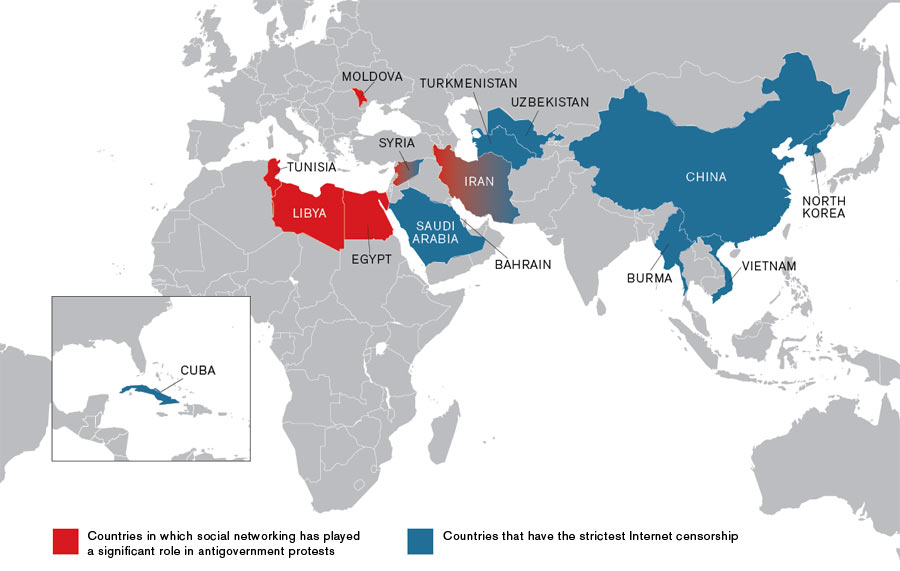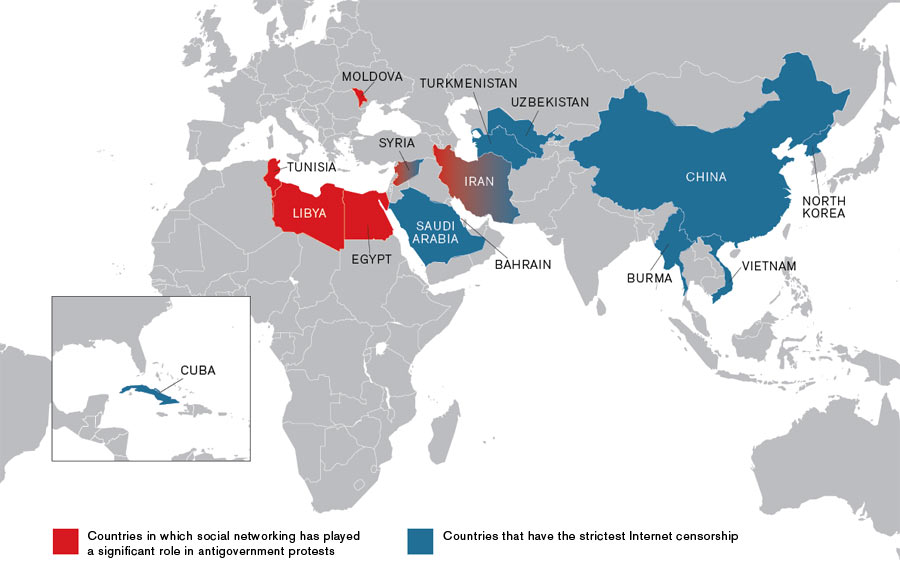

From Online to On the Streets

Clearly, authoritarian regimes feel they have something to fear from social networks. Internet censorship has become almost synonymous with blocking open access to sites like Twitter and Facebook; regimes either shut off access during periods of social unrest or ban certain services permanently. Reporters Without Borders, a nonprofit that advocates for international press freedom, maintains a list of the most censorship-prone nations, indicated here in blue. Some of these countries, such as Syria and Iran, have already experienced protests in which social networks have played a role, while others, such as Cuba, appear to be limiting access on general principles.
Nonetheless, in many cases protesters have been able to bypass censorship. That’s happened in Egypt and Tunisia, two countries Reporters Without Borders had previously listed as among the most restrictive.
Would the popular revolutions occurring throughout the Middle East have happened without social-networking websites? Researchers will probably be debating that question for years, but there is no doubt the social networks have proved vital to organizing mass protests and to documenting the often brutal tactics of repressive regimes, thereby galvanizing both local and global support for the revolutionaries’ cause.
Advertisement